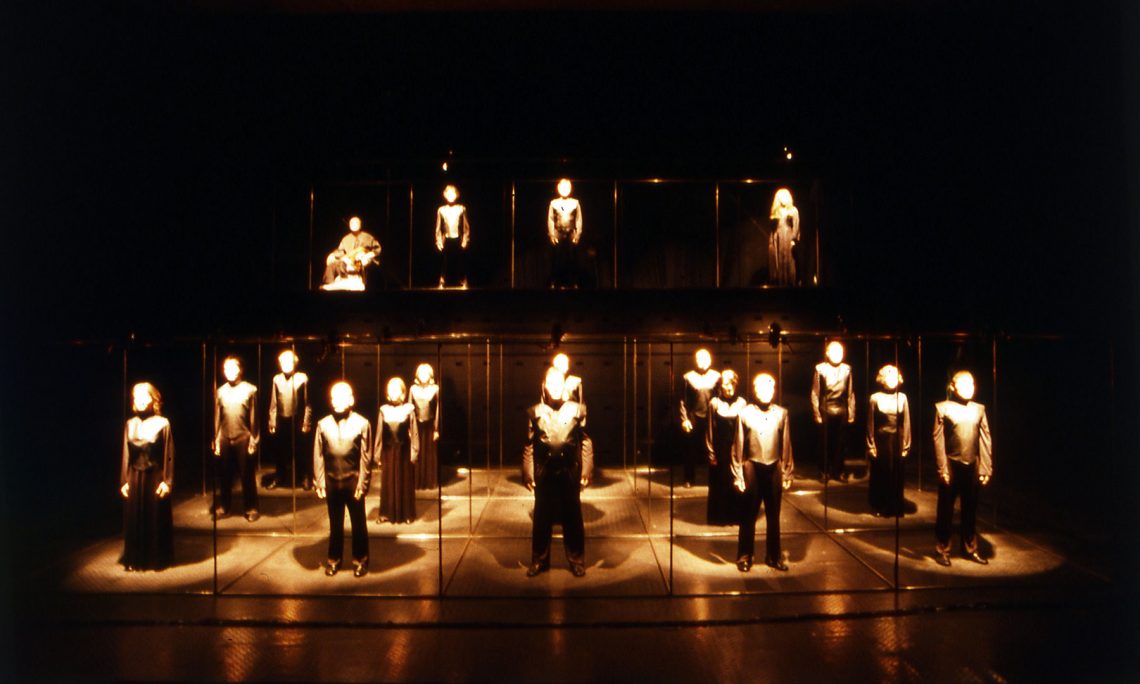The contemporary man is not allowed to take initiative in the destiny he has created with his own hands. He ignores questioning and searching for the reasons. He gave up raising doubts. The comfort of accepting what is given was preferred to the restless excitement of looking for the reasons. The hope to create and change has left its place to being contented with what is given. He is no more courageous enough to defend what he believed to be right. Once the set of values to believe is given, he even began to feel uneasy about the possibility of an obligation to defend his principles. The very moment the contemporary man consented to relinquish his questions and his urge to reason, he has happened to form his own tragedy with his own hands, in which he is stuck and to which he tries his best to turn a blind eye.
FROM THE DIRECTOR’S NOTES
- In each individual game space (or cell) for every player, where all the dramatis personae are obliged to openly reveal their attitudes towards a certain subject, the stage lights create a real process of interrogation and trial for the players, which at the same time is witnessed by the audience.
- The play is almost a trial aiming to raise doubts about, reconsider and re-judge what is believed to be true about Oedipus, and to bring about the real motives that has led him to be a figure of tragedy.
- The interrogative character of Oedipus underlies the rule of this game by the help of the interrogating nature of the light. Once the light is on in each game space (or cell), a reaction is obligatory and this reaction inevitably belongs to both the actor himself and the character he plays.
- The light is the only means to reach the truth, which is both implicit in the meaning of the play and present on the stage at that very moment.
- The truth behind what Oedipus had done and what he had gone through is reached by a game of trial, which takes its tenseness from the restrictiveness of the game spaces and the interrogative quality of the light. The audience watches the story of exiled Oedipus’ acceptance to Colonos, while at the same time practically expects the answer which the actor is obliged to give when the light in his cell is on.
- Thus the audience moves with the light, adopting the doubts and interrogative attitude of Oedipus as a method of witnessing, and consequently, questions, raises doubts and searches for an answer.




